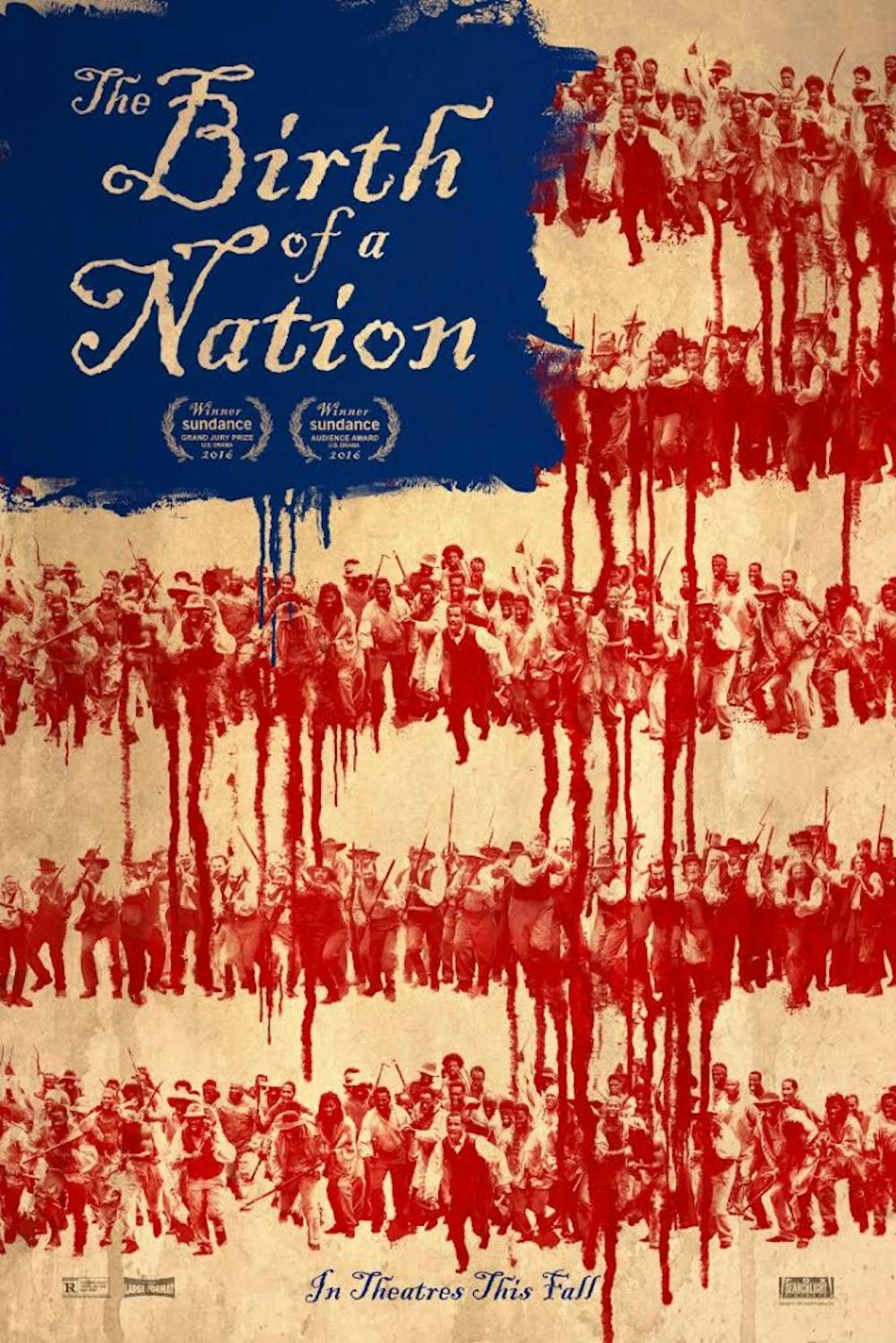“The Birth of A Nation," released on Oct. 7, is a historical drama based on the Nat Turner rebellion of 1831. The film ironically derived its name from a racist propaganda film by D. W. Griffith that glorifies the rise of The Ku Klux Klan. Nate Parker wrote, directed and starred in this film inspired by the only extended slave rebellion in American history. “The Birth of A Nation” effectively presents the audience with a striking portrayal of the atrocities associated with American slavery in a way that leaves the viewers contemplating the dark past of our nation.
Even before watching this movie, some may be familiar with the story of Nat Turner, a literate slave born in 1800 on a Virginian plantation. Turner was a leader among the slaves in Southhampton County, and he used his education to preach the gospel to his peers.
In 1831, Turner led a rebellion that resulted in the murder of his slave master and his family. Accompanied by a militia of about 75 slaves armed with stolen weapons, he then staged an insurrection that took the lives of 51 white people. Turner went into hiding for a few weeks before he was captured and executed along with some of his supporters. His rebellion terrified Southerners and forced them to create stricter laws to protect their way of life.
“The Birth of A Nation” takes an artistic license on Turner’s story by featuring the intimate details of his entire life and only depicting the actual rebellion toward the end.
The characters in the film are well-developed and dynamic. Parker skillfully depicts Turner’s tortuous inner dialogue that led him to action. As a child, Turner was obedient to his masters and happy to quote Bible scriptures justifying his bondage. As an adult, he grows to realize that his masters have hidden the passages of the Bible that renounce his enslavement and he grows defiant and vengeful. Turner struggles throughout the film but experiences a great deal of growth and development as an individual.
It is likely Parker was not attempting to create a completely accurate depiction of a historical event, and there has been much debate among historians over how Nat Turner’s story was portrayed in this movie. Many details were altered for dramatic effect or brevity. For example, the master Turner killed was named Joseph Travis, not Samuel Turner as the movie asserts.
This film was more of an emotionally impactful portrayal of one slave’s influence on the region and the horrors of the institution of slavery than a historical account. Although the film wasn't the most factual, the scenarios were believable enough to allow the audience to empathize with the characters.
One of the film’s shortcomings was the level of predictability in some of the scenes. There were many moments when viewers are able to easily guess what’s coming next. A slave woman is caught alone by slave catchers and violently raped. A slave child is given the opportunity to be educated before having it taken from him and being sent to work in the fields. A slave confronts a slave owner and is viciously whipped. While these situations are absolutely valid, they have been done time and time again in films with similar topics.
The predictability of certain situations is only redeemed by the Parker’s take on the scenes. While many would expect a rape or whipping scene to be gory to shock viewers, this film took a different approach. The emphasis during these scenes was on the emotions of the characters affected by the violence, rather that the actual acts. While there were scenes that were particularly violent, it was obvious that the goal wasn’t to continuously traumatize audience members.
The actors in this film consistently delivered strong performances. Parker’s portrayal of Turner was faceted and calculated, and he was able to convey the wavering between the complacency caused by his relatively fair living conditions and the vengefulness brought on by the brutality slaves faced. Gabrielle Union’s character didn’t have speaking lines, yet she was still able to communicate the joy of love and the pain of sexual assault through body language alone. Her character’s silence likely represents the powerlessness of slave women during this time period.
Although this film doesn’t present an entirely true-to-life account of a famous rebellion, I believe that Parker was able to successfully establish the legacy of Nat Turner and highlight the injustices of American slavery. This film allows viewers to commiserate with the people of this time period and understand the rationale for their actions. The real value of this movie lies in its ability to spark important discussions on race and make viewers think deeply about the history of the United States.

